Radiator & Heating Checks To Make In The Summer
It’s unusual writing about central heating and radiators in the midst of a summer heatwave that’s seen temperatures soar beyond 30 degrees.
With hot summer’s days and nights leaving many of us melting, it is easy to forget that we’ll be switching our heating back on in a few months time.
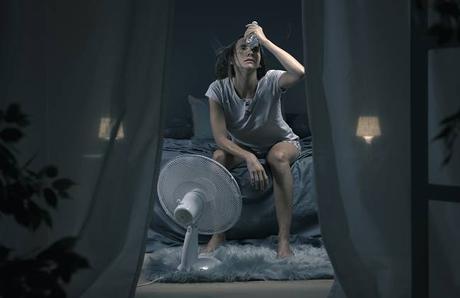
But hot and humid summer days are a perfect time to check that your home’s heating is in good working order.
In this guide, we’ll look at some of the important things you can do in the summer to avoid heating problems in winter.
Switch On Your Heating Once Every Month
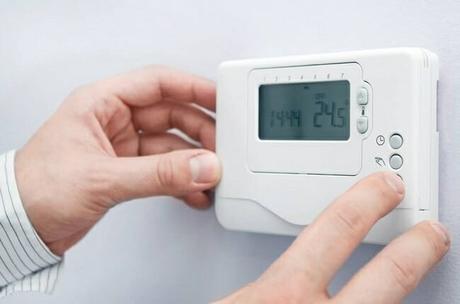
When it is 31 degrees outside (and the roads are melting) switching on your heating isn’t something you’d normally consider.
However, if you click your heating on for just 10 minutes every 3 to 4 weeks, it allows all of the hydraulic components of the system to fire up and get moving.
Just as you might find with a car that hasn’t been started for a while, inactivity is one of the biggest causes of boiler and radiator failure.
Simply switching your boiler on for a few minutes during the summer will help to aid your heating efficiency and prevent any unforeseen issues arising when the weather starts to turn.
Max Out Those TRVs
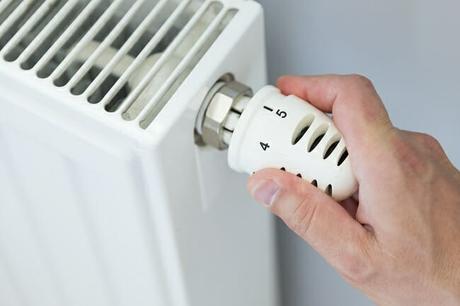
Thermostatic Radiator Valves are clever things, but they sometimes need your help.
In warmer weather, a TRV will close down and stop water flowing through the heating system – because this is what TRVs are designed to do when the temperature changes.
However, if a TRV has been turned down low in the summer, a few months of inactivity could see them get stuck in the “off” position.
This isn’t too bad when it’s warm outside, but when you switch back on again in Autumn you’ll find that any radiator with a stuck TRV doesn’t get warm.
This could mean you need to get a plumber out to fix the issue – adding to the cost of the job – and may even lead to you having to drain down your entire heating system.
You give yourself a better chance of avoiding this if you simply open all the TRVs to full capacity (by turning them clockwise) during the summer months.
Do A Radiator Bleed & Pressure Check
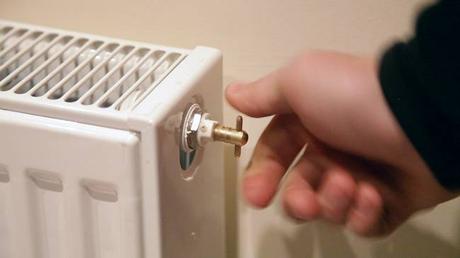
Although you’re highly unlikely to be using them in the summer, it is best to bleed radiators during this time and check boiler pressure too.
If you do have pockets of air in your radiators, these could easily be drawn up into your boiler or heat pump and cause air locks or overheating.
Oxygen left in your radiators can also create a build up of hydrogen in the system, and this can contribute to the internal corrosion of your radiators and potentially damage the important components that make your boiler work effectively.
To learn how best to bleed your radiators, check out our radiator bleeding guide for expert advice and tips.
Summertime Gas Safety & Boiler Checks
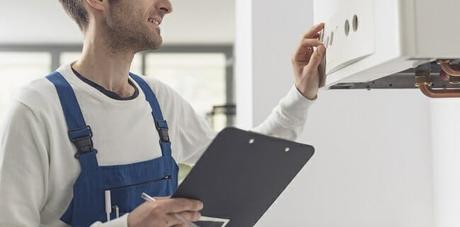
When you think about it, getting your boiler checked in the summer is a bit of a no-brainer.
You’ll experience shorter waiting times to call someone out and you won’t have to worry about cold weather putting the pressure on to get things fixed.
And ensuring your boiler and radiators are all in prime condition and ready for winter will give you added peace of mind too.
Summer is also a great opportunity to get things updated.
You could consider upgrading to Smart Heating, installing a new designer radiator, or even amending your pipework layout to make better use of your space.
Top Up On Corrosion Inhibitor
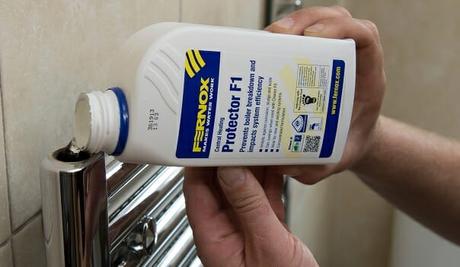
Water and metal do not mix very well.
So much so, that for your heating system to work correctly and be protected against rust and corrosion, you should add a chemical inhibitor to the system.
If you don’t, small shards of metal will flake off from pipework and inside the radiators and eventually cause a blockage that leaves your radiators cold.
With your heating switched off in the summer, water just sits in the system, so it’s the ideal time to top up your corrosion inhibitor and be ready for winter.
A liter bottle of inhibitor should be enough for a system with 10 radiators, and you can learn more about why it’s important in our expert heating inhibitor guide.
Why Perform Summer Heating Checks?
In the UK, we tend to wait until we’re using something all of the time, or when it’s on its last legs, to have it checked and serviced.
And that is a big mistake.
If your boiler breaks down in December – when it isn’t as warm as it is in July – you could be left without central heating when you need it the most.
No family wants to huddle next to a Halogen heater in the depths of winter, so summer heating checks are a great idea.
Even if you only had your boiler serviced recently, getting it checked again now could save you a lot of pain later.

Plumbers Are Just Not As Busy In The Heat!
Okay, so maybe they are fitting some outdoor taps and attending to the odd blocked drain, but plumbers will be nowhere near as busy in the summer as they are in winter.
Winter’s cold weather can cause a lot of different heating and plumbing issues – from burst pipes to seized systems – so plumbers are really busy between October and March.
In the summer, you’ll find it much easier to get hold of a plumber to perform maintenance on your boiler and your radiators.
And the warmer weather means you won’t have to worry about not having the heating on for a few days too.
Being Proactive Now – Avoids Problems Later
To recap, it’s better to make changes and perform maintenance on your radiators and central heating in the summer.
Being proactive when it’s warm outside is far better than sitting in the cold waiting for a plumber to come and save the day.
Follow our five summer heating tips and minimise the chances of encountering problems in winter!
- Switch your heating on every 3 to 4 weeks
- Keep TRVs fully open throughout the summer
- Bleed radiators and check boiler pressure regularly
- Get your boiler serviced while the weather is warm
- Top up your system with corrosion inhibitor
Tackle any heating problems you come across while the sun is shining and you’ll stay warm and cosy when it’s 10 below freezing!
Got A Radiator Or Heating Question?

You can find a range of helpful answers to hundreds of common home heating questions on our FAQ pages.
Click the link or tap the image above to ask a question of your own!

